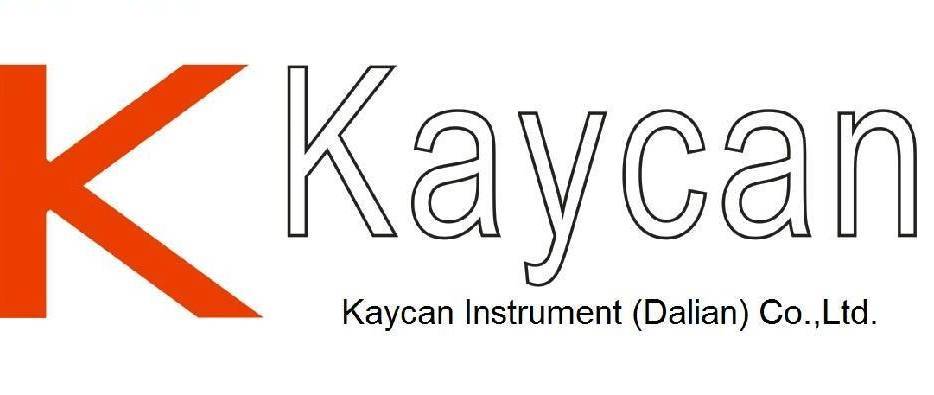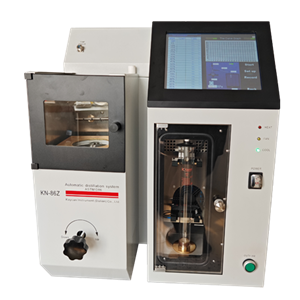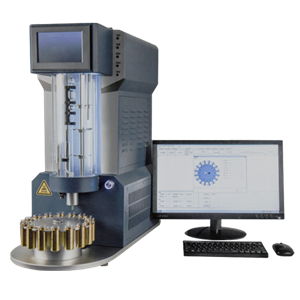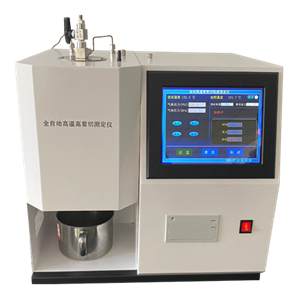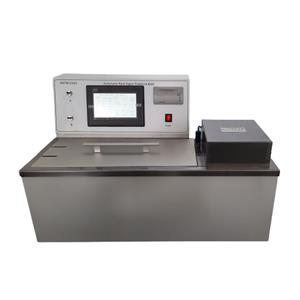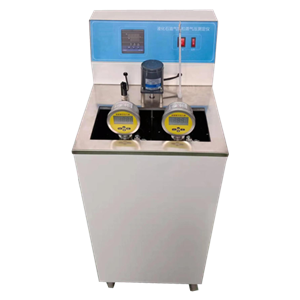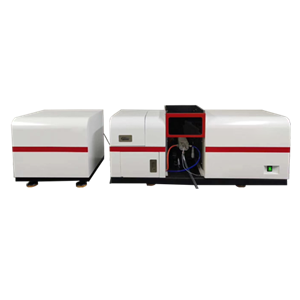-
ASTM D323 Automatic Reid Vapor Pressure Bath
Vapor pressure is an important physical property of volatile liquids. This tester is used to determine the vapor pressure at 37.8°C (100°F) of petroleum products and crude oils with initial boiling point above 0°C (32°F). Vapor pressure is critically important for both automotive and aviation gasolines, affecting starting, warm-up, and tendency to vapor lock with high operating temperatures or high altitudes. Maximum vapor pressure limits for gasoline are legally mandated in some areas as a measure of air pollution control.
Send Email Details -
ASTM D3230 Salts In Crude Oil
KN-3230 Salt Content of Crude Oil Tester conforms to ASTM D3230 Standard Test Method for Salts in Crude Oil (Electrometric Method), it is suitable for the approximate chloride (salts) concentration in crude oil. The range of concentration covered is 0 to 500mg/kg or 0 to 150lb/1000bbl as chloride concentration/volume of crude oil. KN-3230 is suitable for measuring the salt content to detect the total halide value of which the range is 0.002~0.02%(weight) in the crude oil, reduced oil, cracking oil residue and fuel oil, it is also suitable for estimating the seawater pollution situation of the used team turbine oil and bunker fuel oil.
Send Email Details -
Reid Vapor Pressure Bath
KN-323 Reid Vapor Pressure Bath conforms to ASTM D323 Standard Test Method for Vapor Pressure of Petroleum Products (Reid Method). It used for testing the vapor pressure (Because the external atmospheric pressure is counteracted by the atmospheric pressure initially present in the vapor chamber, the Reid vapor pressure is an absolute pressure at 37.8°C (100°F) in kilopascals (pounds-force per square inch)
Send Email Details -
ASTM D3237 Lead in Gasoline by AAS
The gasoline sample is diluted with methyl isobutyl ketone and the alkyl lead components are stabilized by reaction with iodine and a quaternary ammonium salt. The lead content of the sample is determined by atomic absorption flame spectrometry at 283.3 nm, using standards prepared from reagent grade lead chloride. By the use of this treatment, all alkyl lead compounds give identical response.
Send Email Details
